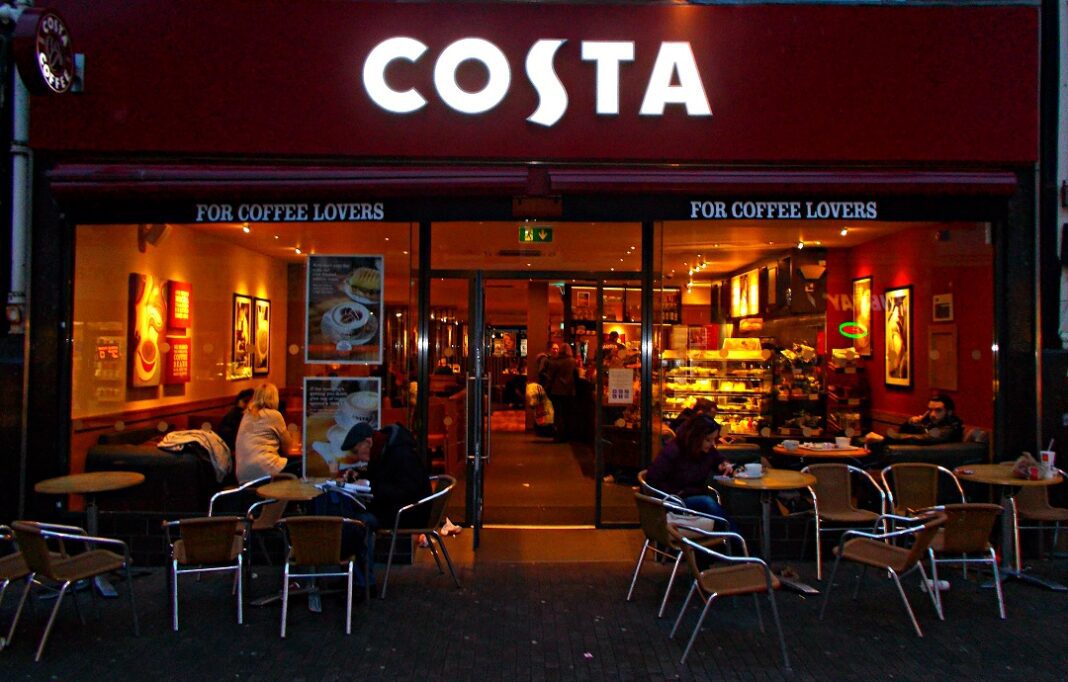LONDON, UK – Project Café Europe 2022 reveals the European branded coffee shop market grew 3.2% over the last 12 months to reach 40,675 outlets. Indicating improved trading for many operators following the pandemic, 29 out of the largest 40 European markets by outlets expanded in size over the past 12 months.
Nevertheless, rising costs, soaring energy prices, and economic disruption from the war in Ukraine are piling fresh pressure on European operators.
Europe’s coffee chain market achieves broad recovery following the pandemic
Europe’s successful Covid-19 vaccination programmes have enabled coffee chains in most markets to trade with fewer restrictions and regain some losses sustained during the pandemic.
Nearly three-quarters of the 40 largest branded coffee chain markets in Europe expanded in terms of outlets over the last 12 months. The UK remains the largest branded coffee shop market in Europe with 9,540 outlets, ahead of Germany with 5,464 outlets, and Russia with 4,318 outlets.
Major branded chains still dominate Europe, with the 20 largest operators holding a 48% share of the total market and 63% of outlets belonging to multi-national operators.
UK-based Costa Coffee remains Europe’s largest coffee chain with 3,263 outlets across 19 markets having opened 87 net stores over the last year. US-based McCafé, Russia’s One Price Coffee and US-based Starbucks are the fastest growing coffee shop brands in Europe, opening 305, 240 and 108 net new stores over the last 12 months.
Russia’s invasion of Ukraine casts a dark shadow over European coffee chain market
The Russian invasion of Ukraine has created a humanitarian disaster, exacerbated
rising raw materials and energy costs and caused further supply chain disruption for coffee businesses already weakened by the pandemic.
Prior to the invasion, Ukraine had been the fastest growing branded coffee shop market in Europe, expanding by 16% over the last 12 months to reach 259 outlets. However, no future growth projection will be made by World Coffee Portal until the situation stabilises.
Meanwhile, many Western multi-nationals, including Starbucks, Costa Coffee and McCafé have temporarily suspended operations in Russia. These outlets are still counted in the market sizing but are expected to become long-term withdrawals in the coming year, with pulling out of Russia bringing significant costs for these international coffee chains.
Sustainability returns to focus following pandemic pause
European coffee shops are slowly turning their attention back to sustainability after the pandemic led to a pause in many initiatives, particularly regarding single-use cup and utensil use for hygiene reasons.
Industry leaders surveyed by World Coffee Portal highlighted a 100% recyclable materials policy as the most the most desirable sustainability policy in their market, followed by increased use of biodegradable packaging and greater transparency on supply chain sourcing.
However, indicating that some progress has been lost during the pandemic, the proportion of industry leaders indicating coffee shops can be proud of their sustainability initiatives fell to from 45% to 35% over the last 12 months.
European industry leaders cautiously optimistic for the future
Despite rising costs and the associated dampening of consumer confidence across Europe, 60% of European industry leaders surveyed believe trading conditions will improve over the next 12 months.
World Coffee Portal predicts the total European branded coffee shop market will exceed 40,890 outlets within the next 12 months, rising to 44,600 outlets by March 2027 at growth of 1.9% CAGR. The coffee-focused segment is expected to lead this growth, exceeding 26,900 outlets by March 2027 at growth of 2.3% CAGR.
Commenting on the report findings, Allegra Group Founder and CEO, Jeffrey Young said:
“Just as the Europe’s branded coffee shops return to more normal trading following the pandemic, the Russian invasion of Ukraine poses a serious risk of further disruption to the market.
“While many European markets will no doubt see growth for the foreseeable future, a number of macro-economic factors, including inflation, lagging consumer spending power rising energy prices and supply chain disruption pose significant headwinds for the industry.”


















